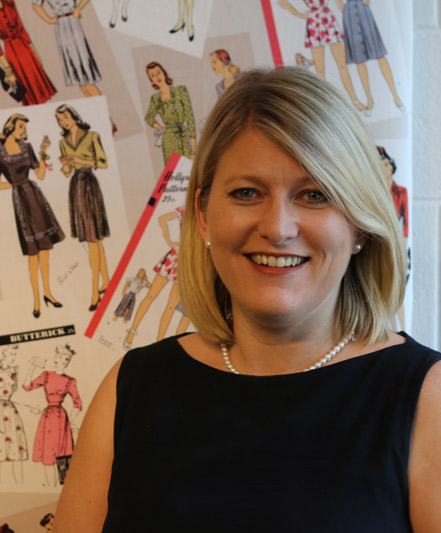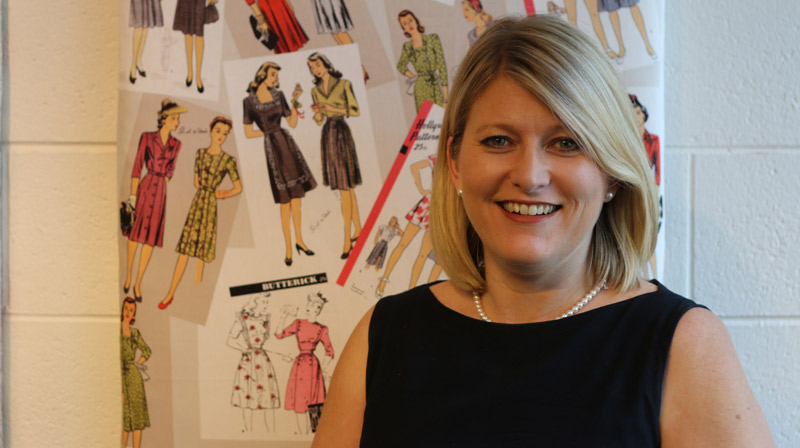 From a background in marketing consulting, Rebecca Wilson applies her entrepreneurial passion and love for community through Starts at 60. Rebecca founded Starts at 60 in 2012 to offer the information, insights and ideas those in the over-60 age group are looking for. Starts at 60 is a news, blog and information website, and online community for over-60s in Australia and New Zealand.
From a background in marketing consulting, Rebecca Wilson applies her entrepreneurial passion and love for community through Starts at 60. Rebecca founded Starts at 60 in 2012 to offer the information, insights and ideas those in the over-60 age group are looking for. Starts at 60 is a news, blog and information website, and online community for over-60s in Australia and New Zealand.
Rebecca gives us an overview of how she has grown throughout her career, and the transition from consultant to tier one firms to successful entrepreneur.
Can you tell us about the Rebecca Wilson story?
My story starts back at university. I studied nothing in particular in a really entertaining way but I got involved in university clubs and innovation groups and got sucked down this addictive hole of entrepreneurship. I can put that as a really exciting thing to have done outside the framework of university that started my hunger.
After university I did the classic ‘get a good job, in an industry that looked good to your family and your friends’ to tick that box. Everybody gets one of those. I was a trainee stockbroker in an era where the Internet didn’t exist and that made my dad smile. My school education was validated and everyone thought, She is going to be safely employed for the rest of her life. Ten months in I moved to London, fell in love and away we went.
I think we left with only six weeks worth of money, not knowing we would arrive in London with six weeks worth of money because the dollar was so weak. We got to week five, we had no jobs and we were looking at that money going ‘we don’t want to ring home and ask for money.’
Week five on the Friday, I got a job at Morgan Stanley and that was a magnificent experience. I worked 60 hours a week for two years in the investment banking industry to fund my ‘backpacking thirty-three countries around the world in two years moments.’ Then I transitioned to the next step, which was coming back from London.
I landed in a friends business who was a 21 year old entrepreneur. I took as much risk as I could in the .com boom- travelled the world, raised capital, did some really cool things that I possibly didn’t realise that I was ever going to do again for fifteen years. Then I went into corporate. The world of .com fell apart and my safety sense was to use all the skills I’d learnt in entrepreneurship but go into that corporate environment and build a career.
I ended up in consulting in tier one and two consulting firms. Learning my way through the engineering industry, basically plodding along what is a very nice, safe career path. I left to have kids at the age of 27 and the management team of the business I worked for said I could come back minimum four days per week or as an administrator, if I wanted a job. At that point I politely said no.
I started then working as a consultant and it was the first taste I had working as a consultant. I worked for $20 an hour in marketing consulting providing advice to people on how to grow their business. My business, Stretch Marketing, started to turnover a decent amount of work and I worked my way to tier one firms in the CBD and very good hourly consulting rates. I did consulting for ten years and stopped taking consulting work in January 2015.
Stretch Marketing started in 2009. I wanted the marketing I did to be a demonstration of how well I would market my clients. From that point I committed to writing blogs, learning more about marketing and found leaders all over the world I wanted to learn from. Since 2009, I’ve been committed to staying on the front of that wave of knowing everything in marketing that I need to know.
That process of hitting the end of Stretch Marketing was really scary as I had just founded Starts at 60. I ended Stretch Marketing because I had effectively ended up back in the corporate world, managing more corporate teams than I was people in my own business.
What inspired you to start Starts at 60?
The over 60s are my parents, they’re cool, they’re awesome. We can all look at our parents who are 50, 60 or 70 and know that they are in a phase of their life that we haven’t seen yet. The generation has never been seen this proactively before. People haven’t been this healthy, worked this long and they haven’t had as much affluence.
I could see this in the corporates I was working for with opportunities for them to work with baby boomers as a great emerging market and I would sit there and rattle their cans going ‘please take notice, these people need you to notice them.’ In the end I sat back and thought, ‘am I taking my own advice? In two years time would I still like to be consulting or could I be doing something more meaningful?’
I’ve got a big social development background which started when I built a website [Flood Discounts] during the 2011 [Brisbane] floods. I built the site with my now business partner overnight when the floods hit to build a community of discounts available for people. We built a website where companies could lodge their discounts and we had 9,000 discounts lodged in the website within 2 weeks. It was a voluntary project and there was no profit because this was my community in Brisbane. The learning of it was how awesome community is. It’s so awesome to do something to change the world a little bit. That’s why I started Starts at 60.
How did you navigate you transition from the corporate consulting world to being an entrepreneur again?
Not very elegantly! I kept trying to wait for the perfect moment to tell my clients that I changed paths but sometimes you don’t want to give up what’s working really well until your new wheel is built and I didn’t know if this new wheel was going to work.
A lot of my beautiful clients are very close friends so they knew I was evolving into something different. They knew I wasn’t going away but they also knew I wasn’t going to be there to provide their ongoing consulting support. I certainly one day didn’t go and announce that I was shutting Stretch Marketing.
I probably could have done it better but you rarely get perfect timing in entrepreneurship. Other than the window we got two weeks ago when we secured a tier one investor and we went, ‘the door now shuts on every earlier project and we are focusing on the things we should do not the things we could do.’
How did you face the challenges when moving from the corporate world to Starts at 60?
We had 3 people a year ago and now we’re up to 18. The first challenges were confidence based. They were around when to hire and what to hire into our team and how to grow and mentor. As a consultant I had never learned how to be a mentor. I had been a really good external mentor but I had never been accountable for somebody’s day-to-day behaviours. Learning how to be a very good manager of people became my next big skill set to work on and I’m still working on it everyday of the week.
When did you introduce a board to Starts at 60?
In January 2015. I had a group of three wonderful people around me as mentors who came around to get me really focused. I had ten things I wanted to do back then but I also wanted to close my investment round. I knew focus was an important part of that. I brought my ten things to the table and my mentors said ‘wow, you could change the world but you can’t do it with all those focuses.’
They told me to knuckle down on a number one focus, run a great business and then the other focuses, which is what we have done. A year later I am so proud of taking their advice because they were right on. We are only at the beginning and they were right to focus me. That’s what a board has been fantastic for.
How will the investment from Seven West Media help Starts at 60 continue to grow?
It doesn’t change who are today. We have built here in this office a very successful business. The people in it are so passionate about what they do; it’s exciting to come in everyday. We wanted to be at the very frontline of media technology as it evolves [and] it takes a fair bit of investment in analysts and data because that is where media is moving. The last thing you want to do is get caught running a publisher with an old-school business model in an evolving media industry.
You want to be running a fully integrated media business that has a great way of understanding how to evolve as the media market evolves. There are lots of reasons for working with [Seven West Media], number one is technology for us and number two is they have enormous reach into the baby boomer [audience]. They really love what we’re doing, we’re an innovation investment and it brings to them an asset they don’t have in digital to do some of that innovation.
Is there anything you wish you had done differently?
At this point, the biggest lessons are around people. I’m constantly learning about recruitment and staffing which I have never had a background in. There’s nothing I would do differently because everything you do that didn’t work, you learn something from that I will use in the future. Without those learnings I don’t think I’d be where I am right now.
What have been some of your biggest lessons from Starts at 60?
Putting deals together. Putting together the deal with Seven West Media, I feel like I got an MBA in 9 short months and it is a privilege to work with a team like that. They are really smart in different things than I am smart in so the mutual strengths are terrific.
I’ve also learnt about building websites at speed with traffic. The developers go ‘Rebecca, you think that’s going to take this long. Multiply it by four.’ The risk of dropping something that isn’t tested properly into 5 million page views can destroy everything and you can’t afford to take a risk with any of the moving pieces.
I think I also would have brought sales people on earlier to make decision making easier but that’s because you think you can do the job for too long. I’m getting better at learning what job I’m good at and now packaging roles and bringing people into those roles where they are going to provide better value than me doing everything. I’ve done almost every job in the business before somebody else did it. I just keep inching myself towards more leadership oriented roles.
What advice would you give to your younger self?
- When you’re sitting in the corner going ‘why am I doing this?’ just keep going.
- If you don’t feel a little bit sick in your stomach, you’re not pushing yourself hard enough.
- It’s okay for you to want to be challenged and it’s also okay to have phases of life where you don’t.
- Be confident to work out who you are. I know we all feel like imposters, it’s normal.
Thanks to Rebecca for sharing her insights with Leaders in Heels!




 From a background in marketing consulting, Rebecca Wilson applies her entrepreneurial passion and love for community through Starts at 60. Rebecca founded Starts at 60 in 2012 to offer the information, insights and ideas those in the over-60 age group are looking for. Starts at 60 is a news, blog and information website, and online community for over-60s in Australia and New Zealand.
From a background in marketing consulting, Rebecca Wilson applies her entrepreneurial passion and love for community through Starts at 60. Rebecca founded Starts at 60 in 2012 to offer the information, insights and ideas those in the over-60 age group are looking for. Starts at 60 is a news, blog and information website, and online community for over-60s in Australia and New Zealand.


